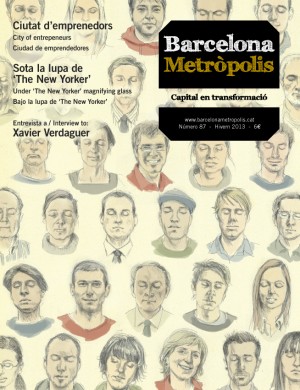Victus. Barcelona 1714
Albert Sánchez Piñol
La Campana Edicions
Barcelona, 2012
608 pages
A novel which portrays the moral collapse of a century split between empiricism and rationalism, light and dark. Victus transcends national events without any type of indulgence, in 600 pages where it is perfectly clear that everything is the outcome of the vulgar dimension of mere existence, and of the desire to exist, to be, with no heroes, and with an exasperating unreasonableness that drives the events forward.
“Here we have the truth that is at the heart of this story: reason lies in unreasonableness” [“He aquí la gran verdad que encierra esta historia: que la razón está en la sinrazón”] utters Martí Zuviria, the main character of Victus, in one of the pointed dialogues that abound in Albert Sánchez Piñol’s latest novel, and perhaps the best definition of the arguments of this resounding story. Sánchez Piñol crafts the events with the style that makes him a terribly efficacious narrator, in a compact, solid and addictive discourse that makes us seize up in fear. As also occurred with unusual forcefulness in Cold Skin (Canongate Books Ltd, 2007) and was underlined in the surprising ingenuity of Pandora in the Congo (Canongate Books Ltd, 2009), facts transcend fiction and take hold of our very fears, once again using the ploy of siege and defence. However, this time the plot leads irremediably to the events of the present. The horror which stems from 1714, and from even farther back, bounces back with frightful intensity.
Nevertheless, one of the most weighty arguments of Victus is that it transcends national events without any type of indulgence, in 600 pages where it is perfectly clear that everything is the outcome of the vulgar – and also marvellous – dimension of mere existence, and of the desire to exist, to be, with no heroes, and with an exasperating unreasonableness that drives the events forward. A novel which portrays the moral collapse of a century split between empiricism and rationalism, light and dark. The novel is a delicious humanistic fiction that depicts the shame and rotting of reason, of egotisms, of needs, of instincts that eventually win out over intellectualism and reason. In this regard, this fable on the fall of Barcelona is imbued with the spirit with which John Locke illustrated the ways of the new century: the world of Martí Zuviría as a mirror of the unknown, like the Word he incessantly pursues. A single word that contains all knowledge hitherto denied and which will be the real reason that drives the world. This anti-hero, Zuvi Piernaslargas, is enormous and brilliant, but even more splendid is the narrative counterweight of the “horrendous” Waltraud, the German scribe who becomes the story’s true narrator. Luckily, all the other characters are brilliant artefacts of a polyhedral and profound story, which erects a novel with an ambitious plot that is perfectly camouflaged in an intricate maze of details, dates, questions, answers, technicalities and misfortunes. All this without ever losing the spark of a diabolically addictive pace.
Split into three parts, Victus becomes a manual of that great first world war, but it is also a homage to classic storytelling. Three acts perfectly marked by three generous and tidy parts, with an initial brilliant presentation dealing with the formation of the main character, Zuviría, a brilliant mentor, Vauban, the discovery of love, Jeanne, and the positioning of the story’s antagonists. The second part transitions toward the climax of the disaster, where we even believe that salvation is possible. And a third act is pervaded by the decrepitude of an era of horror and shame. Mention must be made of the voice of the narrator in the crafting of the novel, prodigiously steering away from any semblance of impact-mongering and sentimentalism. Victus is that blunt, necessary and germinal. It is a Catalan novel that is not written in Catalan. It is the conquest of the normality of this country that links the weight of a defeat that occurred 300 years ago to a future now starting to be written. It is the conquest of an episode tucked away in the memory of the nation’s disgraces; it is the spirit reborn of a literary tradition devoid of epic.
In Victus, Sànchez Piñol demonstrates, once again, that he is a master of storytelling, of impetus and of the compelling resources of the story. He demonstrates magnificently, as always, that style is alive, in the way he questions us, spies on us and offers us entertainment that explains much more than we can take onboard, in a mordant and head-on style, devoid of attributes.




